Bugs eating my rose leaves. Any idea who?
TXcathy7b8a
18 years ago
Featured Answer
Sort by:Oldest
Comments (36)
tinamcg
18 years agoTXcathy7b8a
18 years agoRelated Discussions
Any idea what's eating my pepper leaves?
Comments (6)I would suspect ants. Look very very closely at the main stem especially close to the ground and see if you can see any ants or ant like insects moving up and down the plants the way ants do. They may be very tiny so use a magnifying glass if you have one. I had this problem on my peppers and my eggplants this year. I dusted them really well with a product called Diatect. It worked well for me. It's a combination of Pyrethrins and Diatomaceous Earth. Works really good for ants. I originally bought it for stink bugs but it didn't work at all for them. Here is a link that might be useful: Link to Diatect...See MoreBee's eating my rose leaves, what's up?
Comments (12)what I wouldent give to have a leaf cutter this year. I fought off the aphids and then the ants but VERY few bees. I plant a few things to bring them in and I am heartbroken because I am missing them this year. the "damage" they do has never really hurt my roses and I am happy to see them come back to visit my fresh blooms. I am begging anyone who sees them to please just leaf them bee....See MoreHelp identifying little bug eating holes in my rose leaves!
Comments (5)It's a japanese beetle. Welcome to roses. You can knock them off every evening into a bucket/jar of soapy water like jim recommends and that does work very well, but if you want something stronger and non organic you can spray with sevin in the evenings (not powder, it kills bee hives and not during the day, as that kills active bees also) or use milky spore (Lowes and Home Depot carry it here) but that kills future eggs/beetles so it won't work this year. Or, be like me and do nothing. Some years are worse than others but I'm not harming the butterflies, frogs, skinks, or hummingbirds while trying to control a little leaf damage. When you don't kill one thing, everything lives and eats one another so it all works out for the best....See MoreWho is eating the leaves on my roses?
Comments (14)It was me; I was hungry. Sorry. Astphard, if the caterpillars are bright green and prickly all over, they're Io moth caterpillars. Nasty creatures. I have the good fortune to live with at least 3 distinct species of stinging caterpillar: Io moth, Buckmoth, and a stubby little half-inch green and brown creature with most of its spines on either end of its body--looks like a horse saddle. I don't know the name of that one. Any of these caterpillars can totally defoliate branches in a few hours, and they seem to start at night where we're not watching. Grrr. I just lost over half the leaves on my new Ingrid bush 3 weeks ago. It's recoverying now. At least the damage is so obvious that it's a red flag to look for the caterpillars and destroy them. If the leaves are all gone but you see some stubs of leaf stems left with unevenly chewed outlines, its likely caterpillars. At least they can't run fast to get away, but they do hide well. Sometimes I wonder if they crawl down in the mulch at times to hide. Don't know for sure....See Morejean001
18 years agoTXcathy7b8a
18 years agomichaelg
18 years agoField
18 years agoShamarie1
18 years agoTXcathy7b8a
18 years agovalentine
18 years agoField
18 years agoTXcathy7b8a
18 years agovalentine
18 years agovalentine
18 years agoField
18 years agoTXcathy7b8a
18 years agoTXcathy7b8a
18 years agoField
18 years agoTXcathy7b8a
18 years agocrobin333
18 years agomsrose
18 years agotbanks_fox-net_net
18 years agoLizzieA
18 years agoloree_2008
15 years agothelagirl
14 years agoThomas_Lara_a_yahoo_com
12 years agoSherilee2222
11 years agostrawchicago z5
11 years agostrawchicago z5
11 years ago1Jacqueline50
10 years ago1Jacqueline50
10 years agostrawchicago z5
7 years agolast modified: 7 years agoAnna
7 years agolast modified: 7 years agostrawchicago z5
7 years agoAnna
7 years agolast modified: 7 years agostrawchicago z5
7 years ago
Related Stories

EVENTSEnjoy Plantings, Eat Bugs and Learn at the Australian Garden Show
Indulge your senses at this four-day celebration of gardening, food and more in Sydney — and don't forget to try the crickets
Full Story
GARDENING AND LANDSCAPINGBid Bad Garden Bugs Goodbye and Usher In the Good
Give ants their marching orders and send mosquitoes moseying, while creating a garden that draws pollinators and helpful eaters
Full Story
FALL GARDENING5 Ways to Put Fall Leaves to Work in Your Garden
Improve your soil and yard the organic way with a valuable garden booster that grows on trees
Full Story
GARDENING AND LANDSCAPINGPorch Life: Banish the Bugs
Don't let insects be the bane of your sweet tea and swing time. These screening and product ideas will help keep bugs at bay on the porch
Full Story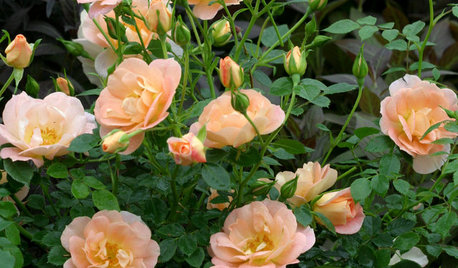
GARDENING GUIDES6 Wonderfully Easy Roses for Any Gardener
Look like an expert even if you're just starting out, with these low-maintenance gems of the rose world
Full Story
EARTH DAYHow to Help Your Town’s Beneficial Birds and Bugs
Make a habitat using local materials to provide a home to the creatures that help our gardens
Full Story
GARDENING AND LANDSCAPINGBreezy and Bug-Free Modern Porches
Screening keeps pests out of these diverse porches across the U.S., while thoughtful designs keep them visually appealing
Full Story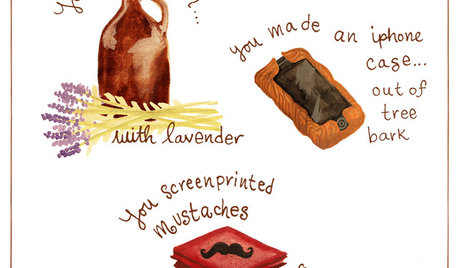
DIY PROJECTS12 Signs You've Caught the DIY Bug
Been making inventive things from scratch? Repurposing salvaged pieces creatively? It may be more serious than you think
Full Story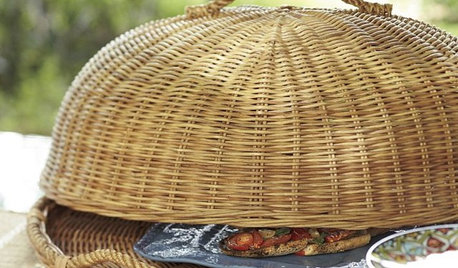
GARDENING AND LANDSCAPINGGuest Picks: Outdoor Eating Essentials
Food armor and other fun finds will protect your edibles from bugs and help you entertain outdoors with ease
Full Story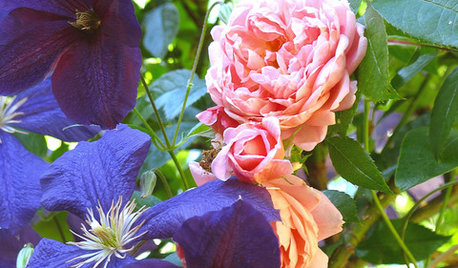
PLANTING IDEASGreat Garden Combo: Rose + Clematis for Small-Space Impact
We all need somebody to lean on. And when a rose supports a climbing vine, the results can totally transform a small garden
Full StoryMore Discussions





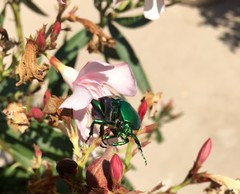
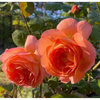

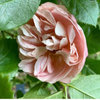
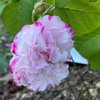
R Walsh